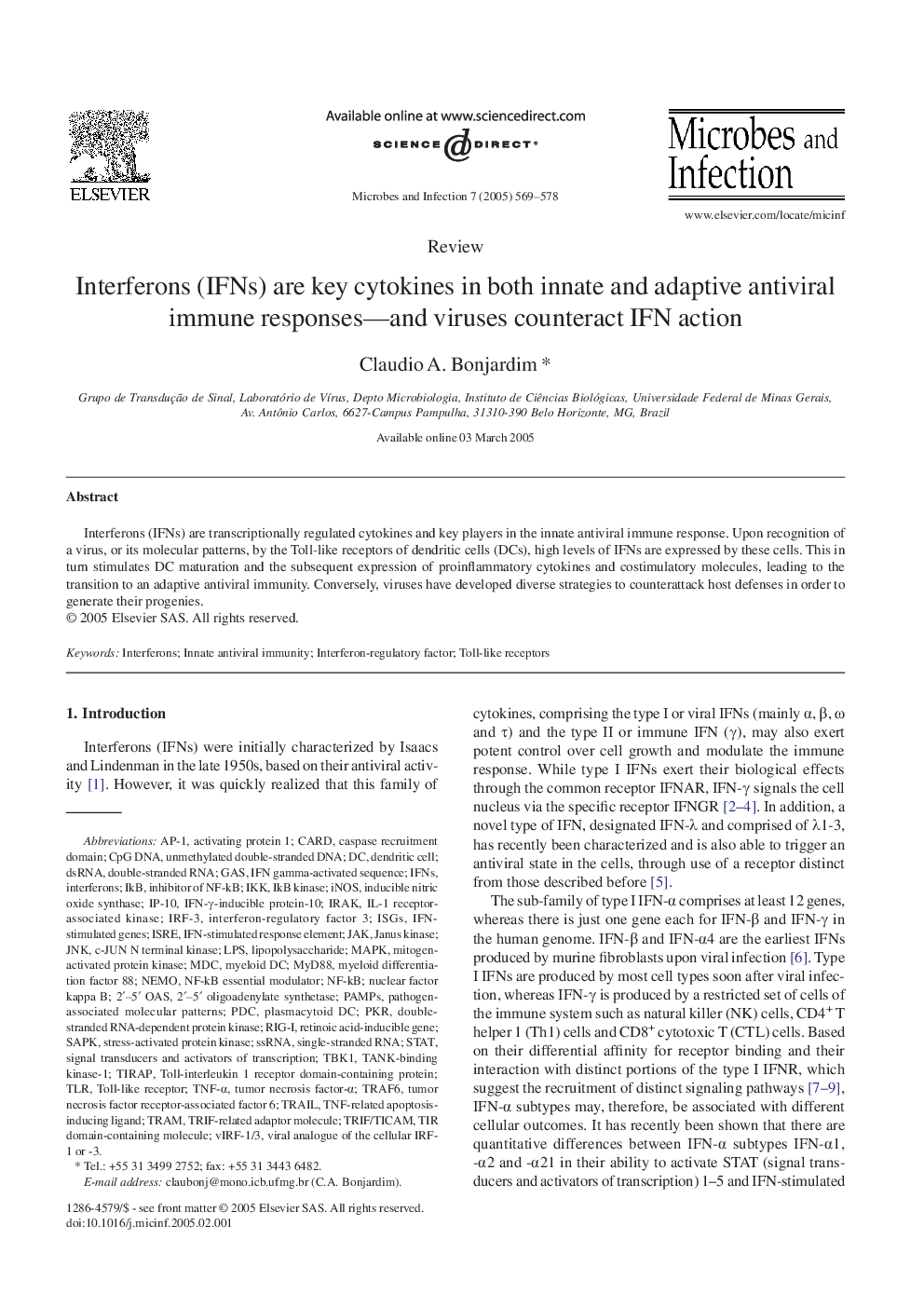| Article ID | Journal | Published Year | Pages | File Type |
|---|---|---|---|---|
| 9283012 | Microbes and Infection | 2005 | 10 Pages |
Abstract
Interferons (IFNs) are transcriptionally regulated cytokines and key players in the innate antiviral immune response. Upon recognition of a virus, or its molecular patterns, by the Toll-like receptors of dendritic cells (DCs), high levels of IFNs are expressed by these cells. This in turn stimulates DC maturation and the subsequent expression of proinflammatory cytokines and costimulatory molecules, leading to the transition to an adaptive antiviral immunity. Conversely, viruses have developed diverse strategies to counterattack host defenses in order to generate their progenies.
Keywords
IP-10AP-1TLRIKKTRAF6PKRdsRNAIKBTBK1RIG-ILPSISREc-Jun N terminal kinaseIRF-3Inhibitor of NF-kBTIRAPSAPKPlasmacytoid DCssRNAIkB kinaseMDCJnkMYD88PDCPAMPsNF-kBiNOSNEMOJanus kinaseCpG DNAIFNsISGsMAPKsingle-stranded RNAdouble-stranded RNASTATpathogen-associated molecular patternsInnate antiviral immunityinterferonsTRAMtumor necrosis factor-αToll-like receptorcaspase recruitment domainmyeloid DCDendritic cellinducible nitric oxide synthasemyeloid differentiation factor 88Interferon-regulatory factortumor necrosis factor receptor-associated factor 6IRAKIFN-stimulated response elementTNF-αnuclear factor kappa Bactivating protein 1TRAILlipopolysaccharideTNF-related apoptosis-inducing ligandsignal transducers and activators of transcriptionTRIF-related adaptor moleculemitogen-activated protein kinaseStress-activated protein kinaseDouble-stranded RNA-dependent protein kinaseJAKretinoic acid-inducible geneIFN-stimulated genesCARDIL-1 receptor-associated kinaseGasToll-like receptors
Related Topics
Life Sciences
Immunology and Microbiology
Immunology
Authors
Claudio A. Bonjardim,
